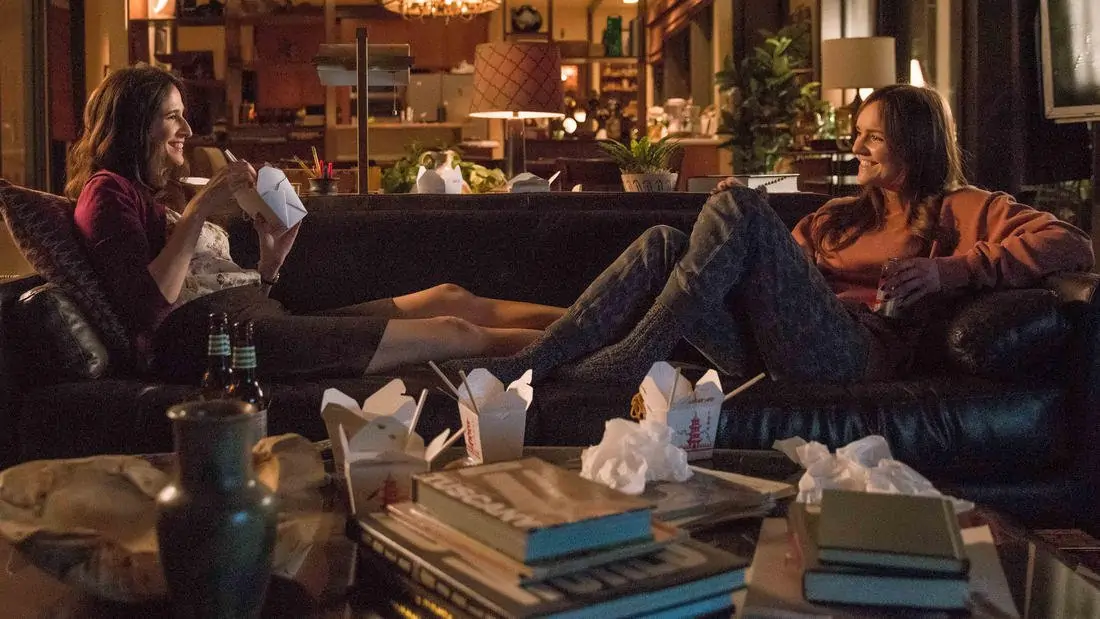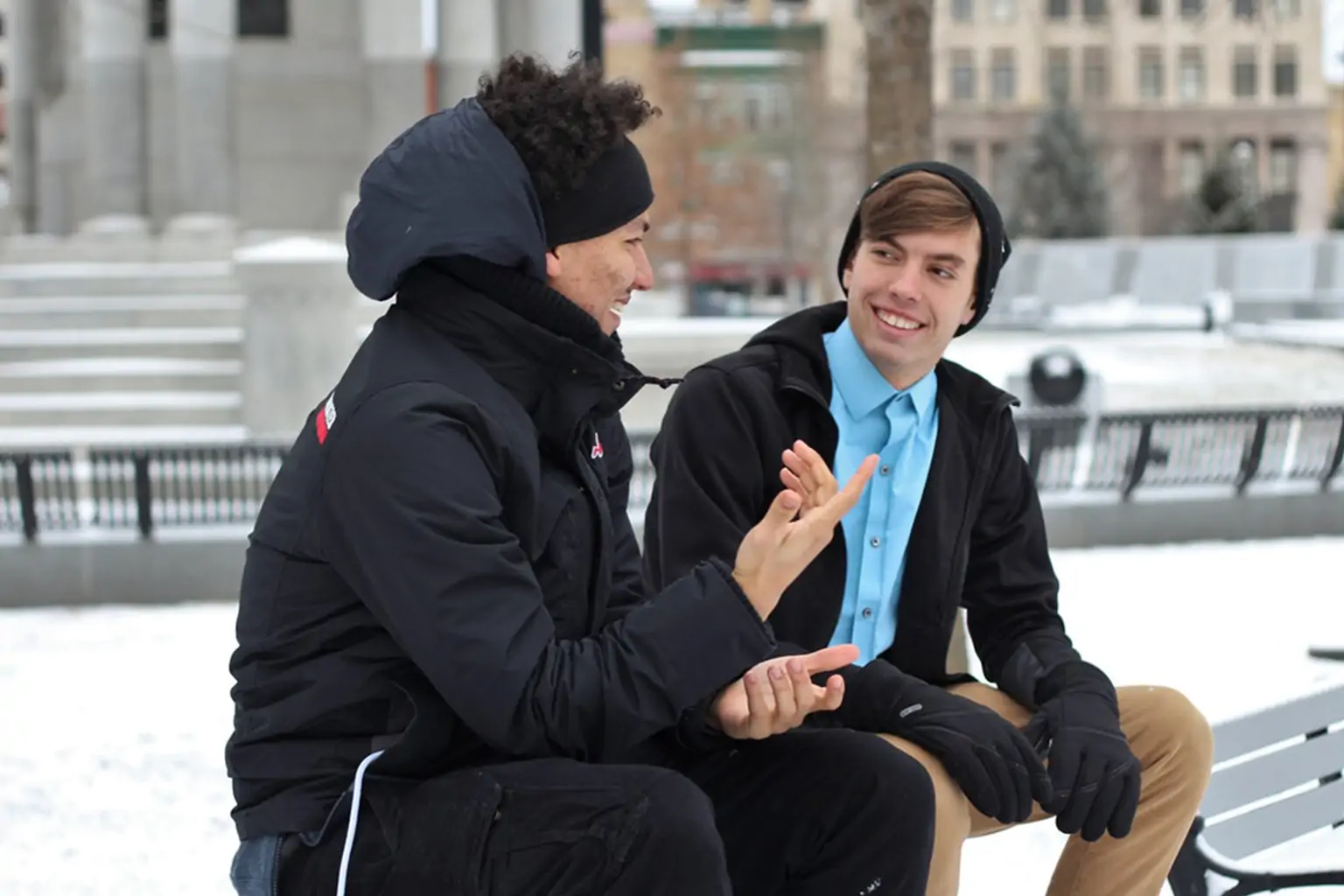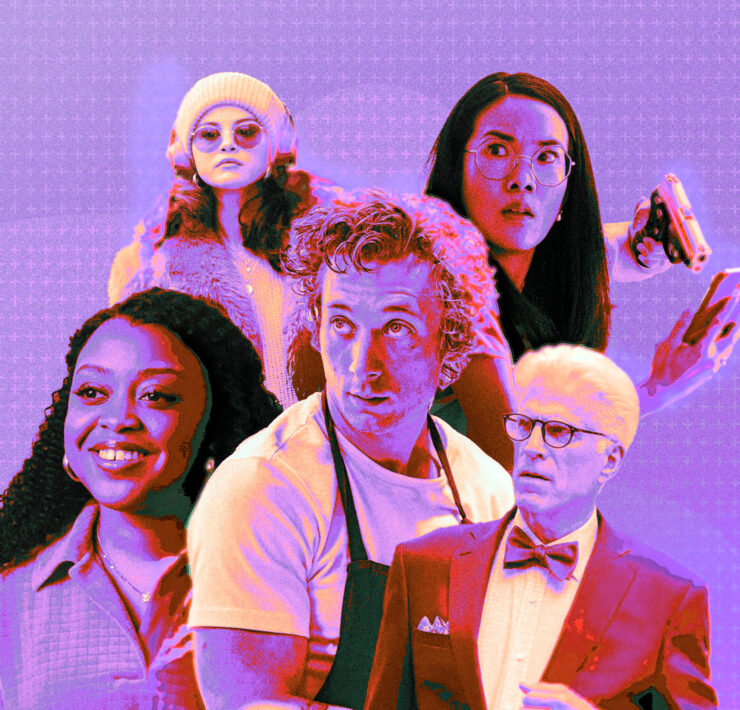
When Casual first premiered in 2015, I was two years out of college, in between jobs and living at home with my brother as we both dealt with a tough family illness. I was still in my pre-deconstructed phase of faith, so I was still bristling at titles like “Casual” because back then, my in-the-bubble self tended to avoid television about casual sex—or at least, any that was overtly so. But somehow, Casual snuck in under the wire.
One of Hulu’s first original shows, Zander Lehmann’s Casual centers around bachelor Alex Cole (Tommy Dewey), his newly divorced sister Valerie Meyers (Michaela Watkins) and her struggling teenage daughter Laura (Tara Lynne Barr) living under the same roof again, all three navigating the highs and lows of casual sex, complicated relationships and familial baggage.
Again, it’s a premise I would have bristled at, but by the third episode, I had texted my brother: “You need to watch this.” Within a few days, we were both hooked, spending hours in front of the television eating waffles and debriefing about how the show was meeting the uncertain place we both found ourselves in at that time. We connected to something in the show we could barely name. We just liked these characters. They were messy and charming, and that made them real.
Back then, that connection was about as far as my relationship to Casual went. I was still blushing at the envelope-pushing sex scenes, but I kept watching because these people felt human to me, even if their lives didn’t mirror mine as much as much as they do now.
Let’s just say that today, as season four brings the show to a close, Casual doesn’t make me blush anymore.
I think about what’s transpired in four seasons. I think of Laura’s experimentation and heartbreak with her bisexuality—almost exactly coinciding with when I fell in love with, and subsequently lost my relationship with, my best friend. I think of Val’s mid-life crisis after finding out she wasn’t her father’s daughter—coinciding with the moment I left my lifelong church and plunged into months of painful deconstruction. I think of Alex’s on-and-off relationship with Emmy, his nightmarish and damaging reunion with Sarah Finn and any number of his other self-destructive flings—coinciding with many unhealthy and complicated dalliances of my own.
And I think about where last week found me, before I watched the final season of Casual—a week of painful goodbyes and endings to fraught relationships. That week forced me to face my own deep grief, loneliness, tragic shouldered narratives and the general tiredness of my soul. I made it through the week alive, in large part, thanks to the compassion of friends willing to hear my story and tell hard stories of their own. I felt my heart heal a little in the solidarity of “me, too”—remembering I am not alone.
Then I started watching this final season (spoiler warning for those who haven’t watched yet). I watched Laura deal with the pain of finally being vulnerable in love, the cost of hiding behind a social media identity and turning her heartbreak into “material,” and the humility required for apology and restitution. I watched Valerie leave her career as a therapist and step out into the unfamiliar, the only known quantity being what she knows she loves to do. I watched Alex navigate unexpected single parenthood, unrequited love in friendship and eventually leaving his Los Angeles home, and everything he knows, behind.
And the amazing thing is, my heart felt the same healing, the same not-alone, the same me-too as in my conversations with flesh-and-blood friends. Because Casual has always been a flesh-and-blood kind of show. Whether looking at Alex’s arrested development in bachelorhood, Valerie’s stumbling attempts at starting over or Laura’s journey of identity formation out of her teenage years, Casual says uncertainty makes up most of life’s content, and it’s both beautiful and hard, and it’s better when you don’t have to do it alone.
Sometimes I think about my old church and the more restrictive purity culture I grew up in, and I feel frustrated I wasn’t given more tools to cope with the grayer areas of life. Having only this bubbled, black-and-white world as a reference point mostly served to make me feel crazy when facing the deep complexity that sex, love, relationship and family actually bring. But then I think that framework was only part of the problem. The real issue was I was living in a world where it wasn’t safe for people to tell their stories.
This, I am realizing, is everything. Because it doesn’t matter how often people tell you you’re not alone. You need stories and specifics to remind you over and over because the world is hard, and everything is always changing, including us, and it’s too easy to fall back into despair. We need real stories and we need them all the time—as honestly as possible.
This is why I am more and more an advocate of “messy TV”—portrayals of people like Alex, Valerie and Laura who don’t have it all figured out, who self-destruct because they don’t trust themselves to be worthy of a good thing, who are terrified of the in-between spaces, but occupy them all the same. Read: people like us.
It follows, then, that the more nuanced the stories we tell, the more we elevate underrepresented voices (messy television still has a long way to go in representing LGBTQ+ and POC’s stories), the more we are brave enough to tell the unvarnished truth of ourselves and the more moments of healing connection we can inspire. These are the stories we need to tell and support.
I will miss you dearly, Casual, for all the laughs, all the brilliant and cringeworthy awkwardness and all the self-love and acceptance you brought me to. But I thank you for the messy television you taught me to love and the stories you taught me need to be told. Let’s never stop telling them.






















